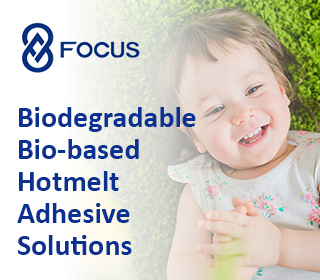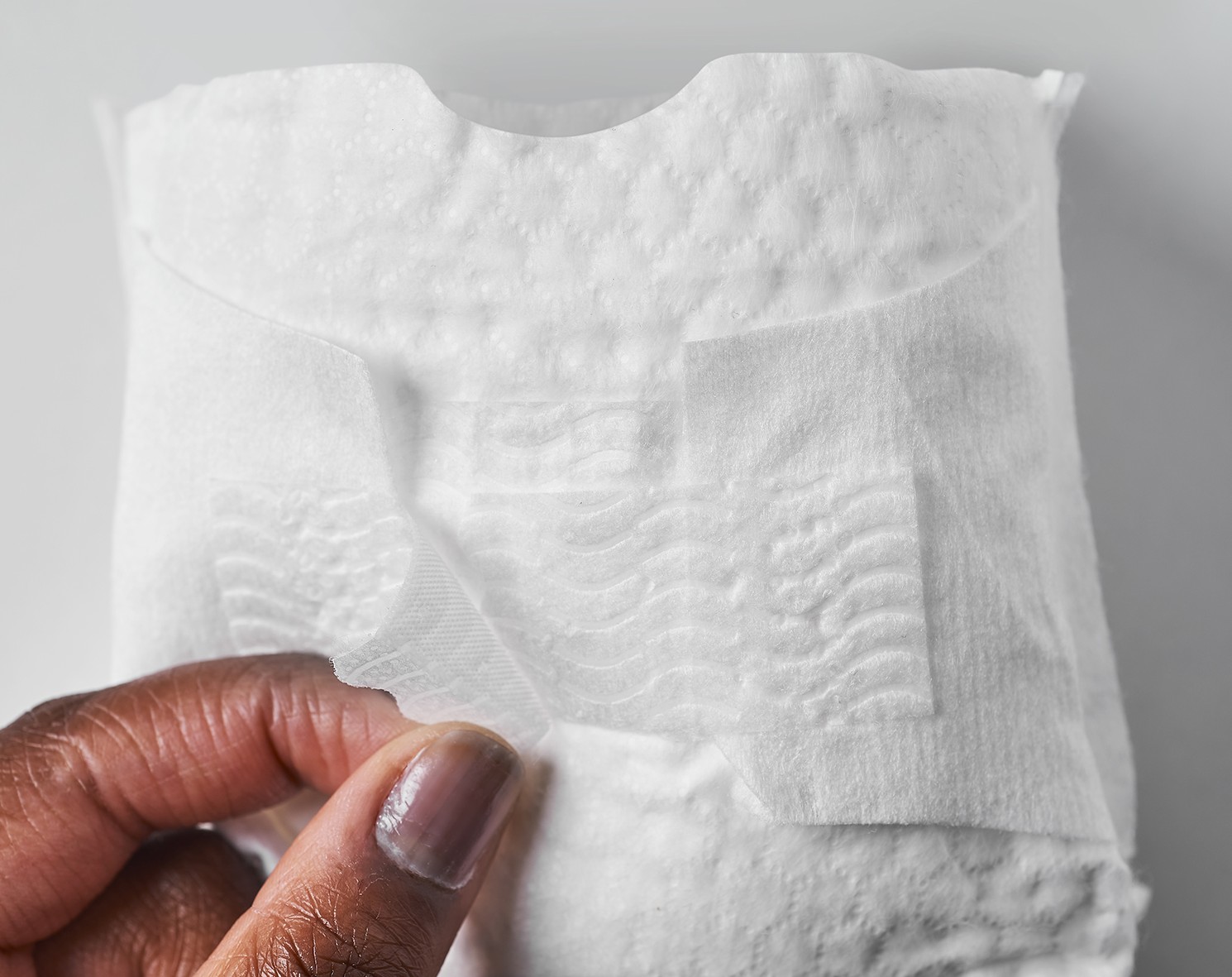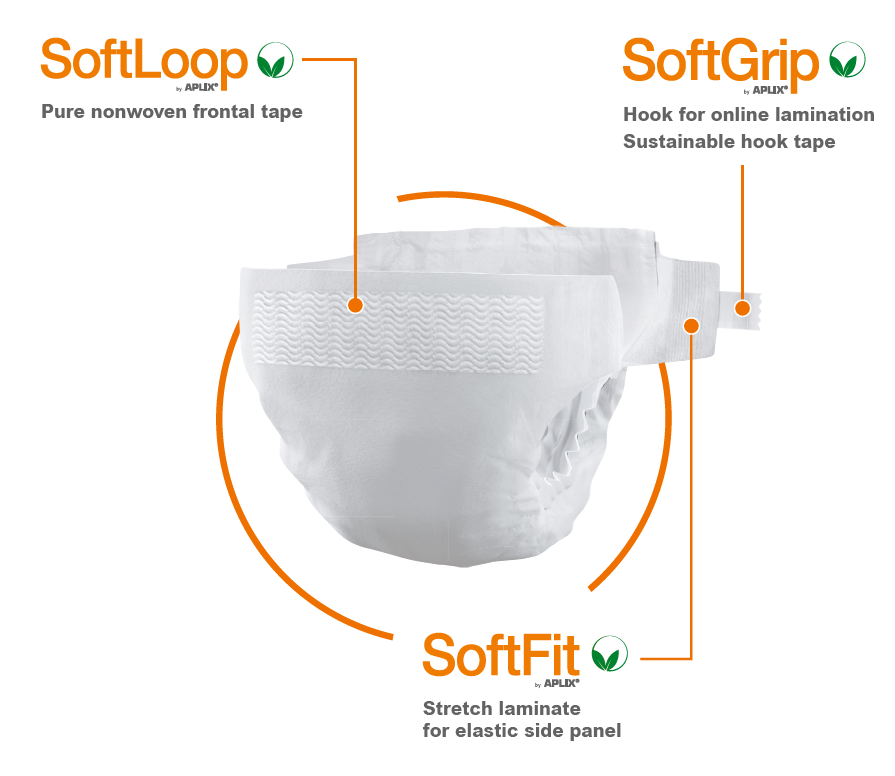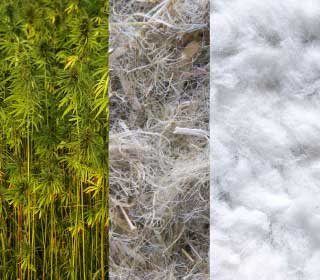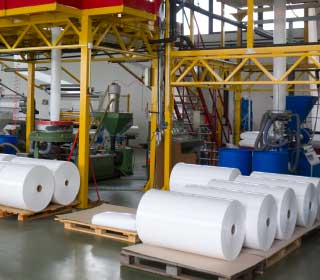APLIX, the first player to launch a mechanical hook and loop closure for diapers, offers a complete product line to ensure proper fit and secure closure system for Baby and Adult diapers. Mindful of the importance of protecting consumers and our environment, APLIX has developed a complete product line of 100% recyclable or industrially compostable closures for your new generation of diapers. APLIX is your strategic partner for sustainable fastening solutions.
Why did APLIX decide to work on a compostable diaper closure solution?
Each baby uses an average of 4,500 diapers from birth to potty training, i.e. approximately 1 ton of waste per child, either buried or incinerated. These diapers are not recycled, even though 75% of a used diapers is made up of organic matter (urine, faecal matter, wood cellulose, etc.). As part of our CSR approach, we had to find a solution that would be part of the virtuous circle: Use - Sort -Compost - Recycle.
What solutions does APLIX offer today?
To equip your new generation of sustainable diapers, APLIX has developed innovative closure solutions made of 100% recyclable or industrially compostable materials. Today, we offer a complete sustainable closure system: frontal tape, hook carrier and elastic ear.
To meet tomorrow's environmental challenges, our Research team is still working on other compostable components of the nappy.
What are these different compostable solutions made of?
The main component is PLA. This material is derived from the polymerization of lactic acid (dextrose = sugar) from corn or sugar cane. It is different from plastics such as polyethylene and polypropylene, which are derived from oil. This material comes from 100% renewable plant resources each year and has the particularity of being biodegradable by living micro-organisms.
What happens then to APLIX compostable products?
Our industrially compostable closures are used in the construction of compostable baby diapers distributed to day-care centers or to individuals with subscriptions. Once soiled, they are collected several times a week to be shredded, mixed with wood chips and green waste in an industrial composter. Once oxygenated, this organic waste is naturally heated up to 70° and transformed by various micro-organisms (microscopic fungi, bacteria, etc.) for 15 days. A final maturation stage of several months is necessary to reach an optimum level of degradation that meets health and environmental standards. In a few months, the waste is recycled and can be used for agriculture and gardening.
